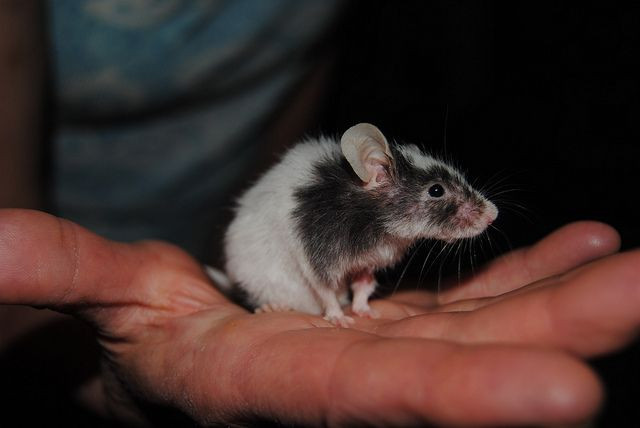
If you think you've heard it all, then you probably haven't heard this.
Researchers claim that mice have limited versions of the brain and behavior traits for vocal learning that are found in humans for learning speech and in birds for learning song.
According to Duke Duke neurobiologist Erich Jarvis male mice match the pitch of other males' ultrasonic serenades and have certain brain features, somewhat similar to humans and song-learning birds, which they may use to change their sounds.
The results are published in PLOS ONE and are further described in a review article in Brain and Language.
For 60 years, scientists believed that mice do not have vocal learning traits at all. Two recent studies suggesting mice do not match pitch or have deafness-induced vocalization changes and Jarvis said the findings are controversial.
"If we're not wrong, these findings will be a big boost to scientists studying diseases like autism and anxiety disorders," Jarvis said. "The researchers who use mouse models of the vocal communication effects of these diseases will finally know the brain system that controls the mice's vocalizations."
Kurt Hammerschmidt, an expert in vocal communication at the German Primate Center who was not involved in the study, said the study is very important, but is cautious about some of the researchers' claims.
Jarvis and his fellow researchers tested male mice for vocal learning traits as part of a larger project to study speech evolution in humans.
The researchers said vocal learning is unique in humans, songbirds, parrots and hummingbirds and said they almost expected every experiment in mice to fail.
Jarvis and his colleagues are examining mouse brains for genes that have only been found in songbirds and humans.
Jarvis said that more research needs to be done to know if mice can learn other features of vocalizations or if their learning is limited to just pitch.
"Our results show that mice have the five features scientists associate with vocal learning," Jarvis said. "In mice, they don't exist at the advanced levels found in humans and song-learning birds, but they also are not completely absent as commonly assumed." he said.
© 2025 Latin Times. All rights reserved. Do not reproduce without permission.




